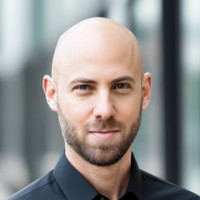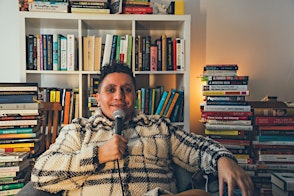Who are we?
We've spent the last several years wrangling messy, fragmented data into structured, usable models to help operators and leaders make better decisions, faster. Our work lives at the intersection of data architecture, AI systems, and real-world complexity. With KayOS, we're building the semantic infrastructure needed to reason, act, and adapt at scale.
We met in Silicon Valley in 2019 and spent the following 6 years advising startups and manually building command centers for a dozen companies
This manual craft provided essential insights into what operators truly needed, what patterns actually worked, and where the friction lived
The breakthrough: coding agents could transform our craft into a scalable platform, building custom command centers in weeks instead of months
David is a strategist, builder, and systems thinker focused on helping ambitious people make sense of complexity and lead with clarity. His work sits at the intersection of AI, knowledge graphs, and organizational design, always in service of enabling smarter decisions and deeper insight.
Before starting KayOS, David was the Chief of Staff at the NEAR Foundation, where he worked on ecosystem design, governance, and decision-making frameworks for emerging networks. He's advised startups, built intelligence systems for high-agency operators, and studied everything from political philosophy to ancient wisdom to understand how people and systems evolve.
David's mission is to build tools that help people think better, act faster, and stay aligned in a world of growing complexity.
Yad is an indie researcher, engineer, and internet hacker based in New York. His work spans machine learning, cybersecurity, and full-stack systems engineering, always with a bias toward building things that are both technically deep and practically useful.
Before KayOS, he led AI / ML at the NEAR Foundation, worked with OpenAI on research initiatives, and contributed to major ML libraries like Keras. He's also competed in the Hyperloop competition with rLoop (Reddit's team), was a Microsoft Imagine Cup finalist, and once built a streaming platform that became part of an ABC reality show.
When he's not shipping code, Yad performs standup comedy and contributes to The Library of Comedy, bringing levity and creative spark to even the most complex systems.
Research We're Exploring
Our work at KayOS is rooted in deep curiosity about how people think, how systems evolve, and how intelligence emerges. These are a few of the research areas that inform our architecture, philosophy, and long-term direction:
Relevance Realization & 4E Cognitive Science
How minds identify what matters in a world of overwhelming data, and how cognition is embodied, embedded, enacted, and extended.
Analytic Idealism & Alternative Metaphysical Theories
Exploring consciousness as primary and reality as structured information, redefining the interface between perception, mind, and world.
Complexity Theory & Emergence
Understanding how meaningful structures arise from dynamic systems and how coherence can be cultivated across levels of abstraction.
Program Synthesis & Low-Rank Tensor Approximation
Building agents that can generalize intelligently from limited examples, compressing knowledge into actions, code, and insight.
Research Reproducibility in Machine Learning
Ensuring that complex systems can be reliably understood, re-used, and improved upon, especially in high-stakes or open-ended domains.
Independent, Open Inquiry
We support the growing movement of internet-native researchers working outside institutions to ask real questions and pursue first principles.
The Nature of Conversations
Investigating how ideas evolve in dialogue and how human-AI collaboration can augment understanding, synthesis, and creativity.
Learning to Learn
From meta-learning algorithms to epistemology, we're fascinated by how systems—biological and artificial—build knowledge over time.
Semiotics & Linguistics
Exploring how meaning is constructed, conveyed, and interpreted across signs, symbols, and language systems, and how this shapes cognition.

